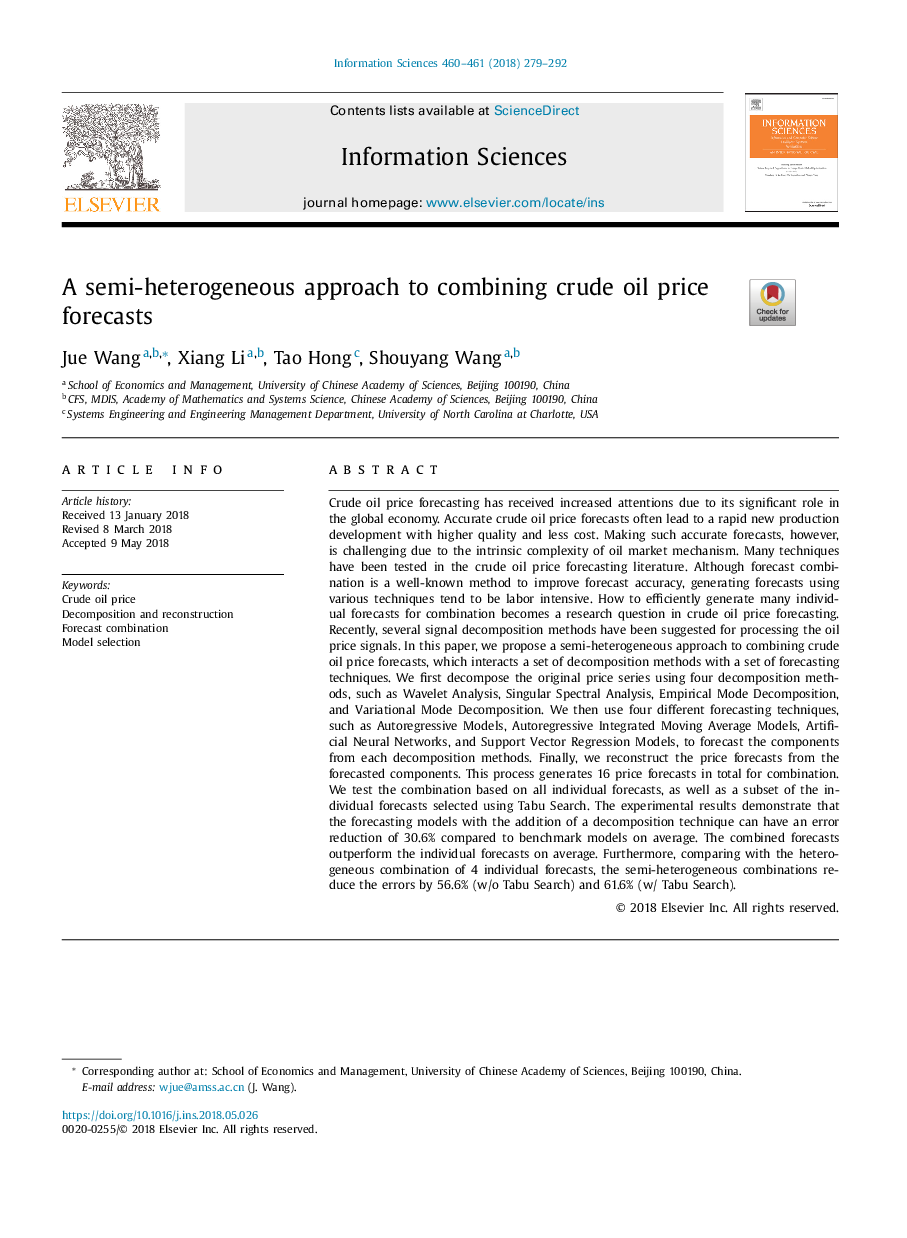| کد مقاله | کد نشریه | سال انتشار | مقاله انگلیسی | نسخه تمام متن |
|---|---|---|---|---|
| 6856270 | 1437951 | 2018 | 14 صفحه PDF | دانلود رایگان |
عنوان انگلیسی مقاله ISI
A semi-heterogeneous approach to combining crude oil price forecasts
ترجمه فارسی عنوان
یک رویکرد نیمه ناهمگن به ترکیب پیش بینی قیمت نفت خام
دانلود مقاله + سفارش ترجمه
دانلود مقاله ISI انگلیسی
رایگان برای ایرانیان
کلمات کلیدی
قیمت نفت خام، تجزیه و بازسازی، ترکیب پیش بینی، انتخاب مدل،
موضوعات مرتبط
مهندسی و علوم پایه
مهندسی کامپیوتر
هوش مصنوعی
چکیده انگلیسی
Crude oil price forecasting has received increased attentions due to its significant role in the global economy. Accurate crude oil price forecasts often lead to a rapid new production development with higher quality and less cost. Making such accurate forecasts, however, is challenging due to the intrinsic complexity of oil market mechanism. Many techniques have been tested in the crude oil price forecasting literature. Although forecast combination is a well-known method to improve forecast accuracy, generating forecasts using various techniques tend to be labor intensive. How to efficiently generate many individual forecasts for combination becomes a research question in crude oil price forecasting. Recently, several signal decomposition methods have been suggested for processing the oil price signals. In this paper, we propose a semi-heterogeneous approach to combining crude oil price forecasts, which interacts a set of decomposition methods with a set of forecasting techniques. We first decompose the original price series using four decomposition methods, such as Wavelet Analysis, Singular Spectral Analysis, Empirical Mode Decomposition, and Variational Mode Decomposition. We then use four different forecasting techniques, such as Autoregressive Models, Autoregressive Integrated Moving Average Models, Artificial Neural Networks, and Support Vector Regression Models, to forecast the components from each decomposition methods. Finally, we reconstruct the price forecasts from the forecasted components. This process generates 16 price forecasts in total for combination. We test the combination based on all individual forecasts, as well as a subset of the individual forecasts selected using Tabu Search. The experimental results demonstrate that the forecasting models with the addition of a decomposition technique can have an error reduction of 30.6% compared to benchmark models on average. The combined forecasts outperform the individual forecasts on average. Furthermore, comparing with the heterogeneous combination of 4 individual forecasts, the semi-heterogeneous combinations reduce the errors by 56.6% (w/o Tabu Search) and 61.6% (w/ Tabu Search).
ناشر
Database: Elsevier - ScienceDirect (ساینس دایرکت)
Journal: Information Sciences - Volumes 460â461, September 2018, Pages 279-292
Journal: Information Sciences - Volumes 460â461, September 2018, Pages 279-292
نویسندگان
Jue Wang, Xiang Li, Tao Hong, Shouyang Wang,
